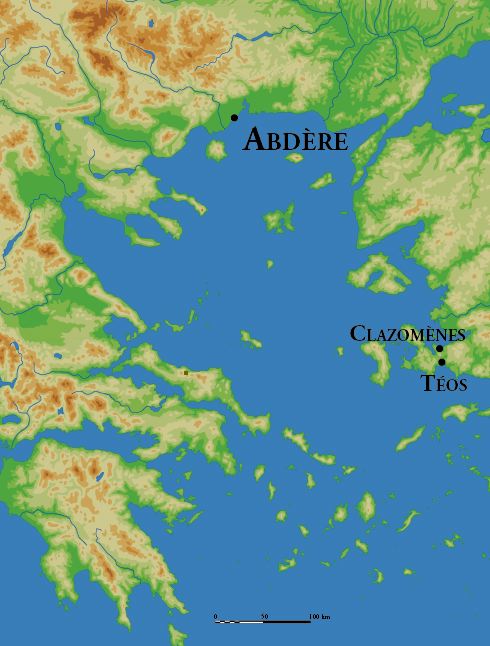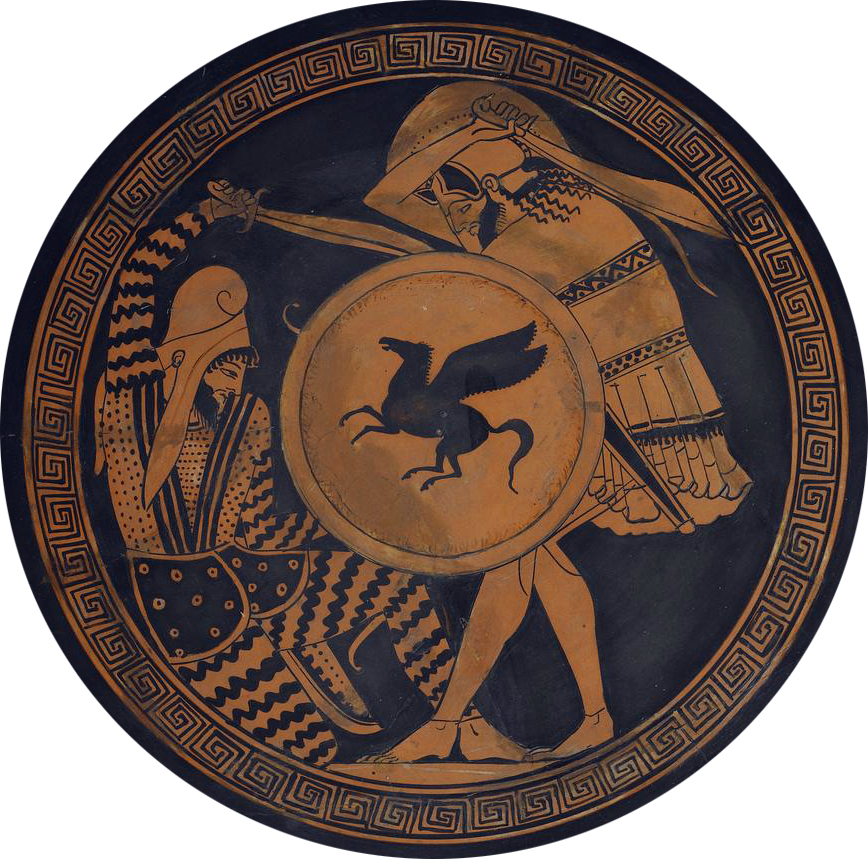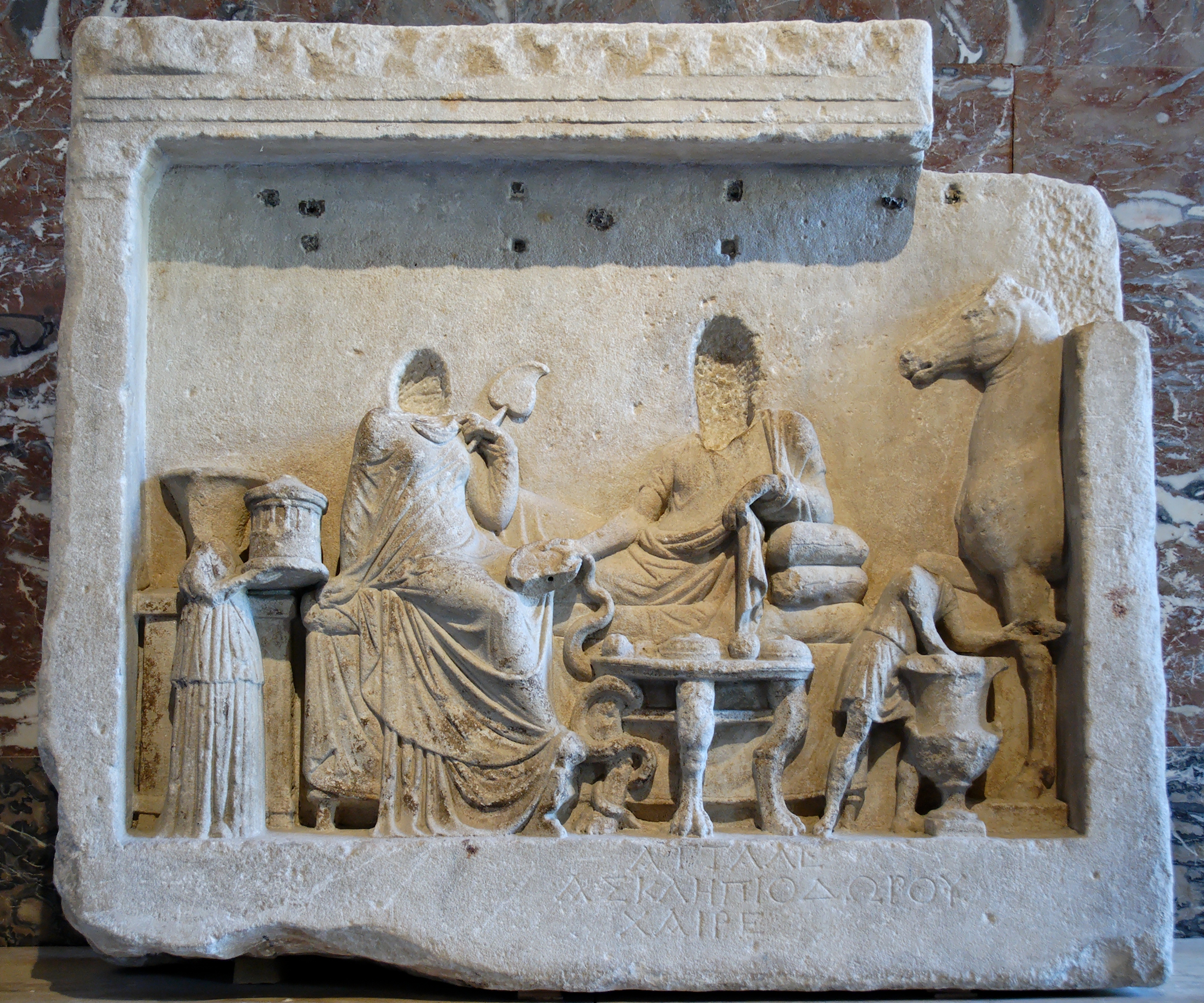|
Isopolity
An isopoliteia ( grc, ἰσοπολιτεία) was a treaty of equal citizenship rights between the ''poleis'' (city-states) of ancient Greece. This happened through either mutual agreement between cities or through exchange of individual decrees. It was used to cement amicable diplomatic relations. The Aetolian League was a unique case of a larger political entity which granted ''isopoliteia'' treaties. '' Sympoliteia'' goes further, merging the governments of two or more ''poleis''. History There are many examples of this, such as a pact between Miletus and Cyzicus from approximately 330 BC which recorded their eternal friendship. On other occasions the treaties had a limited duration and had to be renewed, such as a treaty between Miletus and Phygela from the end of the fourth century BC, which renewed the ''isopoliteia'' between them. A colony could also be granted an ''isopoliteia'' from its mother city, like Kios obtained it from Miletus in ca. 228 BC. With an ''is ... [...More Info...] [...Related Items...] OR: [Wikipedia] [Google] [Baidu] |
Polis
''Polis'' (, ; grc-gre, πόλις, ), plural ''poleis'' (, , ), literally means "city" in Greek. In Ancient Greece, it originally referred to an administrative and religious city center, as distinct from the rest of the city. Later, it also came to mean the body of citizens under a city's jurisdiction. In modern historiography, the term is normally used to refer to the ancient Greek city-states, such as Classical Athens and its contemporaries, and thus is often translated as "city-state". The ''poleis'' were not like other primordial ancient city-states like Tyre or Sidon, which were ruled by a king or a small oligarchy; rather, they were political entities ruled by their bodies of citizens. The Ancient Greek ''poleis'' developed during the Archaic period as the ancestor of the Ancient Greek city, state and citizenship and persisted (though with decreasing influence) well into Roman times, when the equivalent Latin word was '' civitas'', also meaning "citizenhood", whi ... [...More Info...] [...Related Items...] OR: [Wikipedia] [Google] [Baidu] |
Cius
Cius (; grc-gre, Kίος or Κῖος ''Kios''), later renamed Prusias on the Sea (; la, Prusias ad Mare) after king Prusias I of Bithynia, was an ancient Greek city bordering the Propontis (now known as the Sea of Marmara), in Bithynia and in Mysia (in modern northwestern Turkey), and had a long history, being mentioned by Herodotus, Xenophon, Aristotle, Strabo and Apollonius Rhodius. Geography Cius was strategically placed at the head of a gulf in the Propontis, called the gulf of Cius, or ''Cianus Sinus''. Herodotus calls it Cius of Mysia; and also Xenophon, from which it appears that Mysia, even in Xenophon's time, extended at least as far east as the head of the gulf of Cius. Pliny the Elder reports that Cius was a Milesian colony. It was at the foot of Mount Arganthonius, and there was a myth that Hylas, one of the companions of Heracles on the voyage to Colchis, was carried off by the nymphs when he went to get water here; and also that Cius, another companion of Her ... [...More Info...] [...Related Items...] OR: [Wikipedia] [Google] [Baidu] |
Greek Colonization
Greek colonization was an organised colonial expansion by the Archaic Greeks into the Mediterranean Sea and Black Sea in the period of the 8th–6th centuries BC. This colonization differed from the migrations of the Greek Dark Ages in that it consisted of organised direction (see Oikistes) by the originating metropolis instead of the simple movement of tribes which characterized the earlier migrations. Many colonies () that were founded in this period evolved into strong city-states and became independent of their metropolis. Reasons for colonization Reasons for colonization had to do with the demographic explosion of this period, the development of the emporium, the need for a secure supply of raw materials, but also with the emerging politics of the period that drove sections of the population into exile. Population growth created a scarcity of farmland and a restriction of the ability of smallholders to farm it, which was similar in every city-state. In places with surp ... [...More Info...] [...Related Items...] OR: [Wikipedia] [Google] [Baidu] |
Ancient Greek Law
Ancient Greek law consists of the laws and legal institutions of Ancient Greece. The existence of certain general principles of law is implied by the custom of settling a difference between two Greek states, or between members of a single state, by resorting to external arbitration. The general unity of Greek law shows mainly in the laws of inheritance and adoption, in laws of commerce and contract, and in the publicity uniformly given to legal agreements. While its older forms can be studied by the laws of Gortyn, its influence can be traced in legal documents preserved in Egyptian papyri and it may be recognized as a consistent whole in its ultimate relations to Roman law in the eastern provinces of the Roman empire, with scholars in the discipline of comparative law comparing Greek law with both Roman law and the primitive institutions of the Germanic nations. Historical sources There is no systematic collection of Greek laws; the earliest notions of the subject are deriv ... [...More Info...] [...Related Items...] OR: [Wikipedia] [Google] [Baidu] |
Cleruchy
A cleruchy (, ''klēroukhia'') in Classical Greece, was a specialized type of colony established by Athens. The term comes from the Greek word , ''klērouchos'', literally "lot-holder". History Normally, Greek colonies were politically independent; they would have a special relationship with the mother city (the ''metropolis''), but would otherwise be independent entities. Cleruchies were significantly different. The settlers or cleruchs would retain their Athenian citizenship, and the community remained a political dependency of Athens – a position reinforced by installing institutions of local government based on Athenian models, such as the council on Samos. According to Plutarch, cleruchies were assigned to poor Athenian citizens, who would then live overseas while retaining their Athenian citizenship. However, epigraphical evidence suggests that Athenian cleruchs were more commonly wealthy, and continued to live in Athens while slaves worked on their overseas estates. Cler ... [...More Info...] [...Related Items...] OR: [Wikipedia] [Google] [Baidu] |
Abdera, Thrace
Abdera () is a municipality in the Xanthi regional unit of Thrace, Greece. In classical antiquity, it was a major Greek ''polis'' on the Thracian coast. The ancient polis is to be distinguished from the municipality, which was named in its honor. The polis lay 17 km east-northeast of the mouth of the Nestos River, almost directly opposite the island of Thasos. It was a colony placed in previously unsettled Thracian territory, not then a part of Hellas, during the age of Greek colonization. The city that developed from it became of major importance in ancient Greece. After the 4th centuryAD it declined, contracted to its acropolis, and was abandoned, never to be reoccupied except by archaeologists. Meanwhile, life went on as the changing population settled in other communities in the region. One named Polystylus changed its name to Abdera. In 2011 the municipality of Abdera was synoecized from three previous municipalities comprising a number of modern settlements. The ancie ... [...More Info...] [...Related Items...] OR: [Wikipedia] [Google] [Baidu] |
Teos
Teos ( grc, Τέως) or Teo was an ancient Greek city on the coast of Ionia, on a peninsula between Chytrium and Myonnesus. It was founded by Minyans from Orchomenus, Ionians and Boeotians, but the date of its foundation is unknown. Teos was one of the twelve cities which formed the Ionian League. The city was situated on a low hilly isthmus. Its ruins are located to the south of the modern town of Sığacık in the Seferihisar district of Izmir Province, Turkey. History Pausanias writes that the city was founded by Minyans from Orchomenus under the leadership of Athamas, a descendant of Athamas the son of Aeolus. Later on they were joined by Ionians and more colonists from Athens and Boeotia. Because it was founded by Athamas, Anacreon also called it Athamantis (Ἀθαμαντίς). Teos was a flourishing seaport with two fine harbours until Cyrus the Great invaded Lydia and Ionia (c. 546 BC). The Teans found it prudent to retire overseas, to the newly founded colon ... [...More Info...] [...Related Items...] OR: [Wikipedia] [Google] [Baidu] |
Battle Of Mycale
The Battle of Mycale ( grc, Μάχη τῆς Μυκάλης; ''Machē tēs Mykalēs'') was one of the two major battles (the other being the Battle of Plataea) that ended the second Persian invasion of Greece during the Greco-Persian Wars. It took place on or about August 27, 479 BC on the slopes of Mount Mycale, on the coast of Ionia, opposite the island of Samos. The battle was fought between an alliance of the Greek city-states, including Sparta, Athens and Corinth, and the Persian Empire of Xerxes I. The previous year, the Persian invasion force, led by Xerxes himself, had scored victories at the battles of Thermopylae and Artemisium, and conquered Thessaly, Boeotia and Attica; however, at the ensuing Battle of Salamis, the allied Greek navies had won an unlikely victory, and therefore prevented the conquest of the Peloponnese. Xerxes then retreated, leaving his general Mardonius with a substantial army to finish off the Greeks the following year. In the summer of 479 BC, ... [...More Info...] [...Related Items...] OR: [Wikipedia] [Google] [Baidu] |
Colonies In Antiquity
Colonies in antiquity were post-Iron Age city-states founded from a mother-city (its "metropolis"), not from a territory-at-large. Bonds between a colony and its metropolis remained often close, and took specific forms during the period of classical antiquity. Generally, colonies founded by the ancient Phoenicians, Carthage, Rome, Alexander the Great and his successors remained tied to their metropolis, but Greek colonies of the Archaic and Classical eras were sovereign and self-governing from their inception. While Greek colonies were often founded to solve social unrest in the mother-city, by expelling a part of the population, Hellenistic, Roman, Carthaginian, and Han Chinese colonies were used for trade, expansion and empire-building. Egyptian colony Egyptian settlement and colonisation is attested from about 3200 BC onward all over the area of southern Canaan with almost every type of artifact: architecture (fortifications, embankments and buildings), pottery, vessels, to ... [...More Info...] [...Related Items...] OR: [Wikipedia] [Google] [Baidu] |
City-state
A city-state is an independent sovereign city which serves as the center of political, economic, and cultural life over its contiguous territory. They have existed in many parts of the world since the dawn of history, including cities such as Rome, Athens, Sparta, Carthage, and the Italian city-states during the Middle Ages and Renaissance, such as Florence, Venice, Genoa and Milan. With the rise of nation states worldwide, only a few modern sovereign city-states exist, with some disagreement as to which qualify; Monaco, Singapore and Vatican City are most commonly accepted as such. Singapore is the clearest example, with full self-governance, its own currency, a robust military and a population of 5.5 million. Several non-sovereign cities enjoy a high degree of autonomy and are sometimes considered city-states. Hong Kong, Macau, and members of the United Arab Emirates—most notably Dubai and Abu Dhabi—are often cited as such. Historical background Ancient and medi ... [...More Info...] [...Related Items...] OR: [Wikipedia] [Google] [Baidu] |
Kuşadası
Kuşadası () is a large resort town on Turkey's Aegean Sea, Aegean coast, and the center of the seaside district of the same name within Aydın Province. Kuşadası is south of İzmir, and about from Aydın. The municipality's primary industry is tourism. The mayor of the district is Oğuzhan Turan. Geography The city is situated along a Gulf of Kuşadası, gulf of the same name in the Aegean. The island of Güvercinada (in English: ''Pigeon Island'') is connected to mainland Kuşadası by a causeway, and is situated adjacent to the large hill of Kese Dağı near the town centre, center of town. It is located south of İzmir, the area's metropolitan centre, and approximately in driving distance from the provincial seat of Aydın, depending on the route taken. Its neighbours are Selçuk to the north, Germencik to the north-east, and Söke to the east and south. Demographics The district of Kuşadası had a total residential population of 121,493 in 2020, though th ... [...More Info...] [...Related Items...] OR: [Wikipedia] [Google] [Baidu] |
Cyzicus
Cyzicus (; grc, Κύζικος ''Kúzikos''; ota, آیدینجق, ''Aydıncıḳ'') was an ancient Greek town in Mysia in Anatolia in the current Balıkesir Province of Turkey. It was located on the shoreward side of the present Kapıdağ Peninsula (the classical Arctonnesus), a tombolo which is said to have originally been an island in the Sea of Marmara only to be connected to the mainland in historic times either by artificial means or an earthquake. The site of Cyzicus, located on the Erdek and Bandırma roads, is protected by Turkey's Ministry of Culture. History Ancient The city was said to have been founded by Pelasgians from Thessaly, according to tradition at the coming of the Argonauts; later it received many colonies from Miletus, allegedly in 756 BC, but its importance began near the end of the Peloponnesian War when the conflict centered on the sea routes connecting Greece to the Black Sea. At this time, the cities of Athens and Miletus diminished in impo ... [...More Info...] [...Related Items...] OR: [Wikipedia] [Google] [Baidu] |








